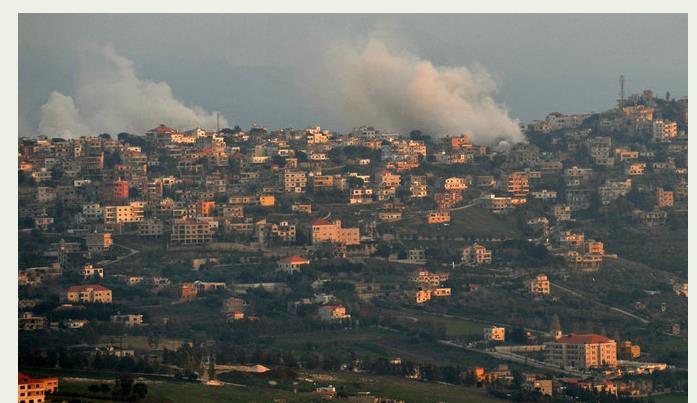
Christian leaders have welcomed the government’s announcement that places of worship in England will be allowed to reopen for individual prayer from 15 June, but Muslim and Jewish leaders said the move was not appropriate for the way they practise their faith.
The decision, confirmed on Sunday by the communities secretary, Robert Jenrick, followed growing pressure on the government, particularly from the Catholic church. Most mosques, synagogues and temples, however, are likely to remain shut until communal prayer is permitted.
Communal services are included in third phase of the government’s recovery plan for England, to be implemented on 4 July at the earliest.
Only individual private prayer inside a place of worship will be permitted from next Monday. The government said “communally led prayer, worship or devotion such as services, evensong, informal prayer meetings, mass, jummah or kirtan will not be possible at this stage”.
Cardinal Vincent Nichols, the archbishop of Westminster and the most senior Catholic in England and Wales, who had pressed for a phased reopening, said the government’s announcement was a great blessing.
“This first step enables us to learn and prepare for those that will take us to a fuller use of our churches, for the celebration of Mass and other sacraments,” he said.
The Church of England, which has come under pressure from some of its clergy to argue more forcefully for places of worship to reopen, also welcomed the move.
“This is the start of the journey for church buildings to open up safely in line with government advice,” said the bishop of London, Sarah Mullally.
“Throughout this crisis churches have been serving their communities in a range of practical ways but this announcement recognises that the buildings themselves are important sacred spaces for people.”
The C of E has already circulated advice to churches on reopening, which acknowledged that not all may be ready to do so at the same time.
Father Marcus Walker, the rector of St Bartholomew’s the Great in the City of London, who has campaigned on social media for churches to reopen, said: “After an exile of four months, people can return to their churches to pray for the friends and family who have died, and find their own peace and comfort in these oases of calm. Now we wait for the time when we can return safely to church together for worship.”
The secretary general of the Muslim Council of Britain, Harun Khan, said the government’s guidance lacked clarity for Muslim communities.
“Mosques are provisioned primarily for congregational worship, so there is currently significant uncertainty and concern from mosque leaders on how the new regulations can actually be implemented,” he said.
The chair of the Mosques and Imams National Advisory Board (MINAB), Qari Asim, said the move caused significant challenges for the Muslim community because although mosques can reopen, collective worship is not allowed. “The fundamental difference between mosques and some other places of worship is that mosques are first and foremost used for congregational prayers,” he said.
Opening the mosques could lead communities to expect the resumption of collective worship, he said. MINAB’s advice to mosques was “to only open to the public when it is safe to do so and legally permissible to hold congregational prayers”.
The senior rabbi to Reform Judaism, Laura Janner-Klausner, said most synagogues would not reopen for private prayer on 15 June. “Jews prioritise communal prayer rather than individual prayer, and we prioritise the sanctity of life. Individual prayer doesn’t have the same theological status, and neither do buildings.
“The government’s policy relates primarily to churches and not to synagogues, gurdawas, temples and mosques. What matters to us is being together, and until we can do that safely, our synagogues will remain shut.”
Jonathan Romain, the rabbi of Maidenhead synagogue and author of The Jews of England, said: “Jewish prayer tends to be communal prayer, so while this will be a very pleasing development for Christians who also emphasise individual prayer it will not make a big difference to synagogue life until full services are resumed.
“My own synagogue, like many others, is reluctantly planning on taking the unprecedented step of cancelling our new year/day of Atonement services in September, and holding them through live-streaming or zoom instead – the very first time in Jewish history this will have been done, as we do not think it will be possible to hold gatherings of several hundred people in a way that is compatible with social distancing and other safety measures.”
Under guidance to be issued this week, the government will say shared spaces must undergo regular thorough cleaning, hand-sanitiser must be available and the use of shared or communal religious texts or prayer mats should be discouraged. Faith leaders should also carry out risk assessments.
Baptisms, weddings, meetings and classes are not permitted. Funerals are allowed to take place under existing regulations which require numbers to be limited and mourners to be physically distanced. Faith leaders are allowed to record services inside places of worship.
Jenrick said: “People of all faiths have shown enormous patience and forbearance, unable to mark Easter, Passover, Ramadan or Vaisakhi with friends and family in the traditional way. As we control the virus, we are now able to move forwards with a limited, but important return to houses of worship.”












